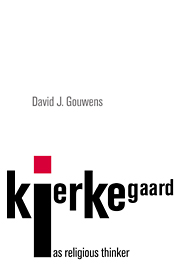Book contents
- Frontmatter
- Contents
- Acknowledgements
- List of abbreviations
- Introduction
- 1 Diseases of reflection
- 2 Anthropological reflection
- 3 Becoming religious: upbuilding before God
- 4 Becoming Christian I: responding to Christ in faith
- 5 Becoming Christian II: suffering and following Christ in hope
- 6 Becoming Christian III: love and imitating Christ in works
- 7 Witness in faith, hope, and love
- Conclusion
- Bibliography
- Index
Conclusion
Published online by Cambridge University Press: 14 October 2009
- Frontmatter
- Contents
- Acknowledgements
- List of abbreviations
- Introduction
- 1 Diseases of reflection
- 2 Anthropological reflection
- 3 Becoming religious: upbuilding before God
- 4 Becoming Christian I: responding to Christ in faith
- 5 Becoming Christian II: suffering and following Christ in hope
- 6 Becoming Christian III: love and imitating Christ in works
- 7 Witness in faith, hope, and love
- Conclusion
- Bibliography
- Index
Summary
The later Kierkegaard's understanding of Christian existence as faith, hope, and love is profoundly social. This can be seen as either a radical break with his earlier thought, or as a development. In either case, the elements of “inner and outer,” “active and passive,” “individual and social” come together in his last days, even within the tensiveness of his dialectical, dualistic thought. Approached from the standpoint of his reflections on “passions” and “virtues,” Kierkegaard sees the religious individual as engaging the world of the finite.
Further, Kierkegaard's understanding of imitation of Christ develops extensively. Kierkegaard's deeper attention to the details of Christ's life, the extensive exegetical study of the gospels on “offense” and “suffering,” provide the concrete image that lead him to an understanding of Christ as the absolute truth, and of discipleship as “following Christ” within the world. Christian pilgrimage is not a private gnostic flight of the soul to God, but is a call to discipleship in the social matrix. “As for the rigorously religious individual, his life is essentially action.”
Kierkegaard's concern with boundaries and priorities preserves the individual's relation to God over against communitarian interests. In a situation in which those boundaries are violated – as Kierkegaard believed them to be in his own day – the response of the Christian may well be one not of quietist resignation, but of vocal opposition to the established order.
- Type
- Chapter
- Information
- Kierkegaard as Religious Thinker , pp. 229 - 232Publisher: Cambridge University PressPrint publication year: 1996



